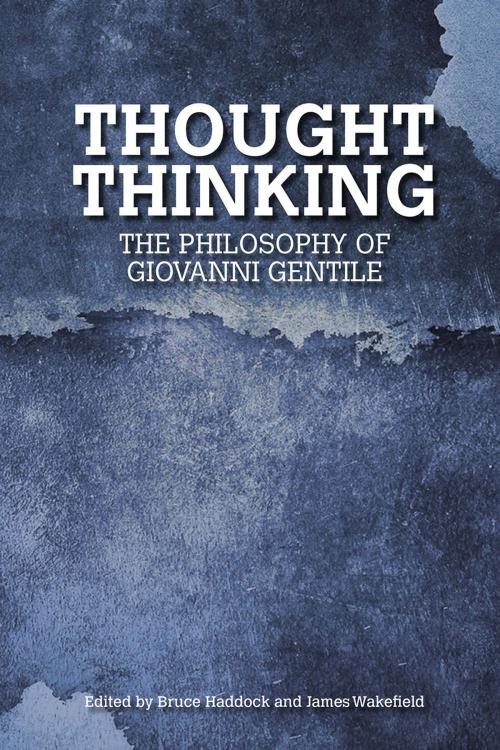Thought Thinking
The Philosophy of Giovanni Gentile
Nonfiction, Religion & Spirituality, Philosophy, Modern| Author: | Bruce Haddock | ISBN: | 9781845408503 |
| Publisher: | Andrews UK | Publication: | July 14, 2015 |
| Imprint: | Imprint Academic | Language: | English |
| Author: | Bruce Haddock |
| ISBN: | 9781845408503 |
| Publisher: | Andrews UK |
| Publication: | July 14, 2015 |
| Imprint: | Imprint Academic |
| Language: | English |
The Italian author Giovanni Gentile (1875-1944) occupied a radical position among philosophers of the first half of the twentieth century. He tried in earnest to revolutionize idealist theory, developing a doctrine that retained the idealist conception of the thinking subject as the centre and source of any intelligible reality, while eschewing many of the unwarranted abstractions that had pervaded earlier varieties of idealism and led their adherents astray.Given his great prominence during his lifetime, it is perhaps remarkable that Gentile is so little discussed, and even then so poorly understood, in the English-speaking world. Few of his works have ever been translated into English, and these represent only a fraction of his great corpus and the many topics discussed therein. This neglect is partly explained by his close association with the Partito Nazionale Fascista (National Fascist Party), of which he remained a loyal member and supporter between 1923 and his assassination in 1944.The volume comprises eleven essays. Seven of these are new pieces written especially for Thought Thinking, and are intended both to contribute to ongoing debates about Gentile's philosophy and to indicate just a few of its many aspects that continue to draw the attention of philosophers, political theorists and intellectual historians. These are supplemented by new English translations of four of Gentile’s shorter works, selected to offer some direct insight into his ideas and style of writing.
The Italian author Giovanni Gentile (1875-1944) occupied a radical position among philosophers of the first half of the twentieth century. He tried in earnest to revolutionize idealist theory, developing a doctrine that retained the idealist conception of the thinking subject as the centre and source of any intelligible reality, while eschewing many of the unwarranted abstractions that had pervaded earlier varieties of idealism and led their adherents astray.Given his great prominence during his lifetime, it is perhaps remarkable that Gentile is so little discussed, and even then so poorly understood, in the English-speaking world. Few of his works have ever been translated into English, and these represent only a fraction of his great corpus and the many topics discussed therein. This neglect is partly explained by his close association with the Partito Nazionale Fascista (National Fascist Party), of which he remained a loyal member and supporter between 1923 and his assassination in 1944.The volume comprises eleven essays. Seven of these are new pieces written especially for Thought Thinking, and are intended both to contribute to ongoing debates about Gentile's philosophy and to indicate just a few of its many aspects that continue to draw the attention of philosophers, political theorists and intellectual historians. These are supplemented by new English translations of four of Gentile’s shorter works, selected to offer some direct insight into his ideas and style of writing.















